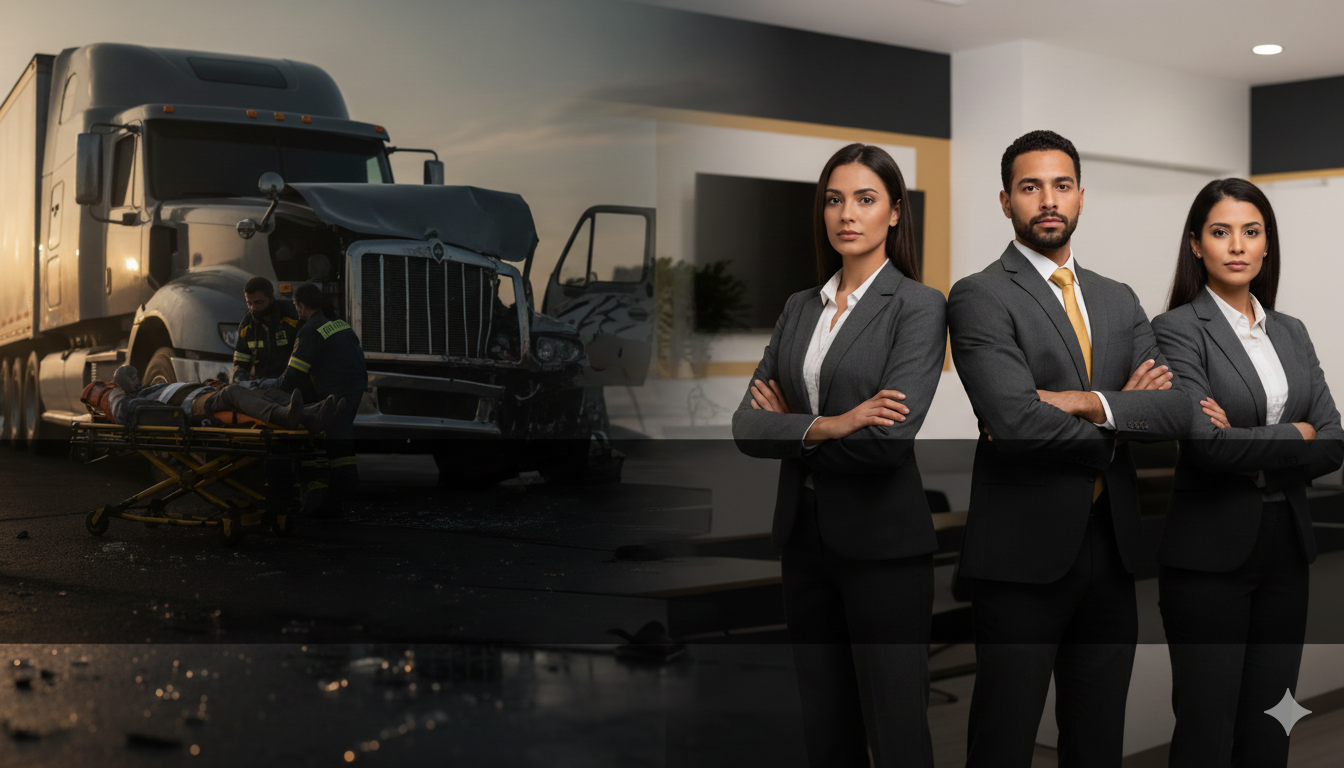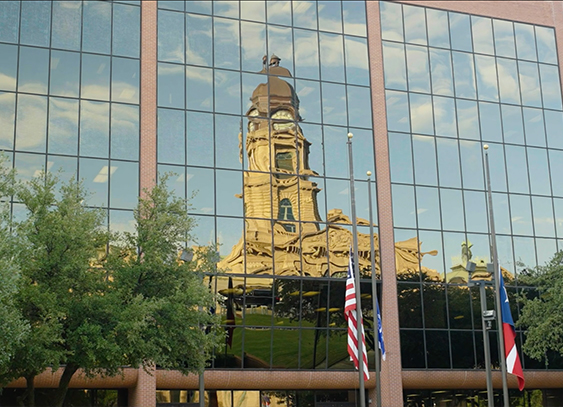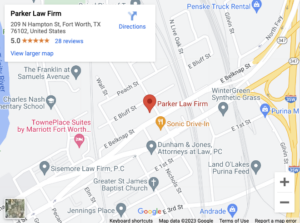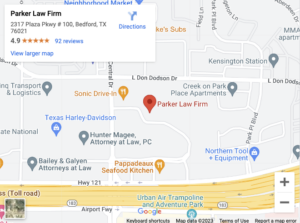Commercial Vehicle Accident Claims: Navigate Liability, Damages, and Your Rights

After a crash with a commercial truck, your first thought is for your safety and the safety of your loved ones. While you’re still trying to figure out what just happened, the trucking company and its insurance team are already moving fast to protect themselves. They may send people to the scene right away, not to help you, but to start building their own case and collecting evidence that helps them, not you.
This starts an immediate and often invisible race for evidence and the truth. With over 500,000 commercial vehicle crashes each year in the U.S., many find themselves at a disadvantage against well-prepared corporate teams. At Brad Parker Law Firm, we know how to counter these tactics, giving you a fighting chance and working to restore what was taken from you.
Understanding Commercial Vehicle Accidents
Getting hit by an 18-wheeler, delivery van, or construction vehicle isn’t just a bigger car accident. It’s a whole different situation, with complicated laws and big companies working hard to protect themselves. Knowing what makes these crashes different is key to protecting your rights. You’re not just dealing with a driver—you’re up against a corporation and their lawyers.
What makes truck accidents different from car accidents
When a semi-truck hits a car, the injuries are usually serious, and the financial fallout can last for years. Commercial trucks have to follow strict rules set by both the state and federal government—rules about how long drivers can be on the road and how often trucks must be inspected. If a trucking company or driver breaks these rules, it’s not just a ticket. It can be proof they were careless, which is powerful evidence in your case.
The stakes are high because federal law requires large insurance policies for commercial trucks, which can range from $750,000 to $5,000,000 depending on cargo. This high payout potential drives insurers to use aggressive tactics to minimize claims and protect their assets from the outset.
Key terminology and regulatory context (FMCSA, Hours of Service, spoliation)
Navigating a commercial vehicle accident claim means entering a world with its own language and rules. The Federal Motor Carrier Safety Administration (FMCSA) is the federal agency that creates and enforces regulations for commercial trucking in the United States. These FMCSA regulations cover vehicle maintenance, driver training, and a set of rules called Hours of Service (HOS). HOS rules are specific laws that limit how long a commercial driver can operate a vehicle without rest to prevent fatigue-related accidents. Truck drivers now use Electronic Logging Devices (ELDs), which are digital tools required by law to automatically record driving hours and rest periods. Violations of HOS, often detected through data from ELDs, are a frequent cause of serious accidents and serve as important evidence in a legal claim.
Another crucial term is “spoliation.” Spoliation of evidence is the legal term for the destruction or alteration of evidence that is relevant to a legal proceeding. In a trucking case, this could mean erasing data from an ELD, “losing” maintenance logs, or repairing the truck before it can be independently inspected. The trucking company’s team knows the value of this evidence, which is why a “rapid response investigation” is so critical. An experienced truck accident attorney will immediately issue a spoliation letter, a formal legal document demanding the preservation of all potential evidence in a commercial vehicle accident. This letter puts the company on notice that any destruction of evidence will have severe legal consequences.
Roles of drivers, carriers, loaders, and other potential defendants
Unlike a typical car crash, where liability, the legal responsibility for an accident, often falls on a single driver, a commercial truck accident can have multiple at-fault parties. The driver may have been negligent, but their employer, known as the motor carrier, may also be liable for negligent hiring, poor training, or pressuring the driver to violate Hours of Service (HOS) rules. This is a legal concept known as vicarious liability, which means an employer is legally responsible for the actions of its employee performed within the scope of employment.
Responsibility can chain further. The company that loaded the cargo may be at fault if improper loading led to the crash. The manufacturer of the truck or a faulty part may be liable for defects, or the maintenance facility could share blame for inadequate repairs. Identifying all defendants quickly opens more avenues for compensation for your damages.
Immediate Steps After a Commercial Vehicle Accident
In the chaotic aftermath of a wreck, it is difficult to think clearly. Your focus is rightly on your health and safety. However, the actions you take in the hours and days following the crash can have a profound impact on your ability to recover fair compensation for your injuries. Think of these steps not as a burden, but as the first actions you can take to start leveling the playing field and protecting your future.
Safety, medical attention, and documenting injuries
Your first priority is always your well-being. If you are able, move to a safe location away from traffic. Call 911 immediately to report the accident and request medical assistance, even if you feel you are not seriously injured. Adrenaline can mask the symptoms of serious injuries like internal bleeding or brain trauma, and a formal medical evaluation creates an official record of your physical condition immediately following the crash. This medical record is a vital piece of evidence. Follow all medical advice, attend follow-up appointments, and be meticulous about documenting every symptom and every visit. This creates an unbroken chain of evidence connecting your injuries to the accident.
Preserving evidence and reporting the crash
While waiting for help to arrive, if you are physically able, use your phone to become your own first investigator. Take photos and videos of everything: the position of the vehicles, the damage to all cars involved, skid marks on the road, road conditions, and any relevant traffic signs or signals. Get pictures of the truck from every angle, including any company logos, DOT numbers, and license plates. If there are witnesses, get their names and contact information. Their testimony can be invaluable. When the police arrive, give them a clear, factual statement of what happened, but do not admit fault or speculate about the cause. Obtain the police report number and the officer’s name and badge number before you leave the scene.
Do’s and don’ts when dealing with insurance companies
Soon after the accident, you will likely receive a call from an adjuster representing the trucking company’s insurer. It is vital to understand that this person is not on your side. Their job is to minimize their company’s financial exposure. They may sound friendly and concerned, but they are trained to elicit statements from you that can be used to devalue or deny your claim. Do not give a recorded statement. Do not sign any documents. Do not accept an early settlement offer. You have no obligation to speak with them. The best and safest response is to politely decline to speak and refer them to your attorney. This simple act is one of the most powerful ways to protect yourself from their tactics and ensure you do not inadvertently harm your own truck accident claim.
Liability and Parties Involved
Determining who is legally responsible for a commercial vehicle accident is a complex process that lies at the heart of your claim. Truck accident liability is rarely straightforward. Because so many different individuals and corporations play a role in putting a commercial truck on the road, a thorough investigation is essential to uncover every party whose negligence contributed to your injuries. This is not about assigning blame; it is about ensuring that all responsible parties are held accountable for the harm they have caused.
Determining liability with multiple parties
An experienced legal team will begin by casting a wide net. The investigation starts with the driver, but quickly expands. Was the driver properly licensed and trained? Did the trucking company (the carrier) conduct a thorough background check, or did they hire a driver with a history of safety violations? Was the driver an employee, making the company vicariously liable, or an independent contractor, which can complicate the liability picture? We then look at the truck itself. Maintenance logs are scrutinized to see if the carrier was cutting corners on safety to save money. If a specific part failed, the manufacturer may be brought into the case. If the cargo was improperly loaded, the shipping or loading company could be at fault. Each of these paths represents a potential source of recovery, and pursuing all of them is crucial to securing the full compensation you need.
Liability theories in trucking cases (negligence, regulatory violations, vicarious liability)
The legal foundation for most truck accident claim cases is negligence. To prove negligence, we must show that a party had a duty to act with reasonable care, that they breached that duty, and that this breach directly caused your injuries and damages. For example, a driver who is texting while driving has breached their duty to pay attention to the road. Proving a violation of FMCSA regulations is another powerful way to establish negligence. If we can prove the driver exceeded their legal hours of service, that is often considered “negligence per se,” meaning the act is negligent simply because it violated a safety law.
As mentioned, vicarious liability is another critical theory. This holds the trucking company responsible for the negligent acts of its driver if the driver was acting within the scope of their employment. This is crucial because the company typically has a much larger insurance policy than an individual driver. Our firm has successfully used these theories for decades, including in a recent case where we uncovered a poor vetting history that allowed us to pursue not only the trucking company’s $1 million policy but also an additional $3 million from the broker who negligently hired them.
Impact of hours-of-service violations and maintenance failures
Driver fatigue is a leading cause of catastrophic truck accidents. FMCSA hours of service violations are a red flag indicating that a driver was likely drowsy and that both the driver and the carrier disregarded critical safety rules. Data from the truck’s ELD and GPS can create a precise timeline of the driver’s activities, often revealing clear violations they hoped would go unnoticed. Similarly, maintenance records can tell a powerful story of neglect. Worn-out brakes, bald tires, or malfunctioning lights are often the result of a corporate culture that prioritizes profits over people. When we can prove that a carrier systematically ignored required maintenance, it not only establishes their liability but also paints a compelling picture of corporate irresponsibility that can be very persuasive to a jury.
Damages and Compensation
After establishing liability, the focus of your commercial vehicle accident claim shifts to calculating the full extent of your losses. These losses, known as damages, are not just about the immediate medical bills. They encompass every way the accident has impacted your life physically, financially, and emotionally, both now and for the rest of your life. Securing fair compensation means meticulously accounting for every one of these damages to ensure you have the resources needed to rebuild.
Economic damages (medical bills, lost wages, future care)
Economic damages are the tangible, calculable financial losses you have incurred because of the accident. This starts with all past and current medical expenses, including ambulance rides, hospital stays, surgeries, medication, and physical therapy. It also includes lost income from being unable to work, as well as any loss of future earning capacity if your injuries prevent you from returning to your previous job or working at all. For those with catastrophic injuries, the most significant component of economic damages is often the cost of future medical care. This can include lifelong needs for in-home nursing, medical equipment, home modifications, and ongoing therapies. We work with life care planners and forensic economists to project these costs over a lifetime, ensuring that the compensation we seek will truly cover your needs for decades to come.
Non-economic damages (pain, suffering, consortium)
Non-economic damages are intended to compensate you for the intangible, but very real, human costs of the accident. This includes physical pain and suffering, emotional distress, mental anguish, scarring and disfigurement, and the loss of enjoyment of life. These damages acknowledge that your life has been fundamentally altered. You may no longer be able to enjoy hobbies, participate in family activities, or live with the independence you once had. In Texas, a spouse may also have a claim for loss of consortium, which compensates them for the loss of companionship, support, and intimacy resulting from their loved one’s injuries. While no amount of money can erase this suffering, it is the legal system’s way of acknowledging the profound personal toll of the accident and providing a measure of justice.
Special considerations for uninsured/underinsured motorists
While most commercial trucks carry large insurance policies, there are situations where you may need to turn to your own insurance policy for help. If you are the victim of a hit-and-run or if the at-fault vehicle was a smaller commercial van being used for business without proper commercial insurance, you may need to file an uninsured motorist claim. If the at-fault party’s insurance is insufficient to cover the full extent of your catastrophic damages, you may file an underinsured motorist claim. Navigating an uninsured/underinsured motorist claim can be complex, as you are essentially in an adversarial position with your own insurance company. Having an attorney who can advocate for you and ensure your insurer honors the terms of your policy is essential.
Strengthening Your Truck Accident Claim
A successful truck accident claim is not built on luck; it is built on a foundation of solid evidence, expert analysis, and strategic legal action. From the moment we are retained, our focus is on strengthening your case and protecting it from the tactics of the defense. This proactive approach is designed to maximize your chances of securing a full and fair recovery.
Preserving evidence: spoliation letters and early preservation
As we have discussed, the race for evidence is real and it is urgent. The most critical pieces of evidence in a commercial vehicle accident, such as ELD data, GPS records, driver communication logs, and the truck’s “black box” data, are all in the possession of the trucking company. They have a legal duty to preserve this information, but an immediate spoliation letter from an attorney reinforces this obligation and creates legal jeopardy for them if anything disappears. This formal demand for preservation is one of the first and most important actions we take. Our rapid response team of investigators and accident reconstructionists works to secure this data and conduct an independent inspection of the vehicles and the crash scene before evidence can be lost or altered forever.
Using expert evidence (accident reconstruction, forensic economists)
Trucking cases are often a battle of experts. The trucking company and its insurer will have a team of experts ready to interpret the evidence in a way that favors them. To counter this, we build our own team of leading experts. Accident reconstructionists can analyze the physical evidence to create a scientific, data-driven model of how the crash occurred, often proving what really happened despite a driver’s claims. Medical experts can explain the severity and long-term consequences of your injuries. Vocational experts can testify about your diminished ability to work, and forensic economists can calculate the full financial impact of your lost earnings and future care needs. The testimony of these credible, independent experts is often the key to proving the true value of your claim.
Contingency fee arrangements and case costs
Fighting a legal battle against a major corporation can seem financially impossible for an individual or family already struggling with medical bills and lost income. That is why our firm, like most personal injury firms, handles these cases on a contingency-fee basis. This means you pay no upfront attorney’s fees. We only get paid if we win a settlement or verdict for you. We also advance all the costs of litigation, which can be substantial, including expert witness fees, court filing fees, and deposition costs. This arrangement levels the playing field, allowing you to have access to the same high-quality legal representation and expert resources as the powerful corporations you are up against, without any financial risk. It ensures that justice is not just for those who can afford it.
Why Choose Our Firm for Your Truck Accident Claim
When you are facing the fight of your life, you need more than just an attorney; you need a dedicated advocate, a compassionate guide, and a relentless champion in your corner. For over 35 years, Brad Parker Law Firm has been that champion for families in Bedford, Tarrant County, and across Texas. We have built our reputation on taking on the giants of the trucking and insurance industries and winning. We are the attorneys you want, but hope you never need.
Our approach is built on the pillars of immediate action, deep regulatory knowledge, and unwavering client support. We know from experience that trucking companies send their best to the scene right away, so we act even faster. We treat you like family because we understand that you are trusting us with your future during the most difficult time of your life. While we have secured many multi-million-dollar results for our clients, like the $5 million recovery for a family who lost a loved one to a drowsy oilfield truck driver, we devote the same passion and thoroughness to every case, regardless of its size. The fight for your future is our fight, too.
If you or a loved one has been injured in a commercial vehicle accident, the time to act is now. The race has already begun, but it is not too late to get a head start. Contact Brad Parker Law Firm today for a free, no-obligation consultation. Let us listen to your story, answer your questions, and explain how we will fight tirelessly to secure the justice and compensation you deserve. You don’t have to face this alone.


